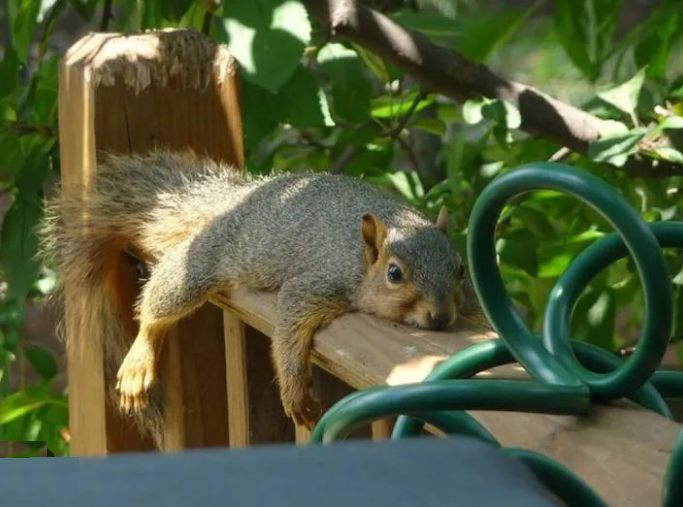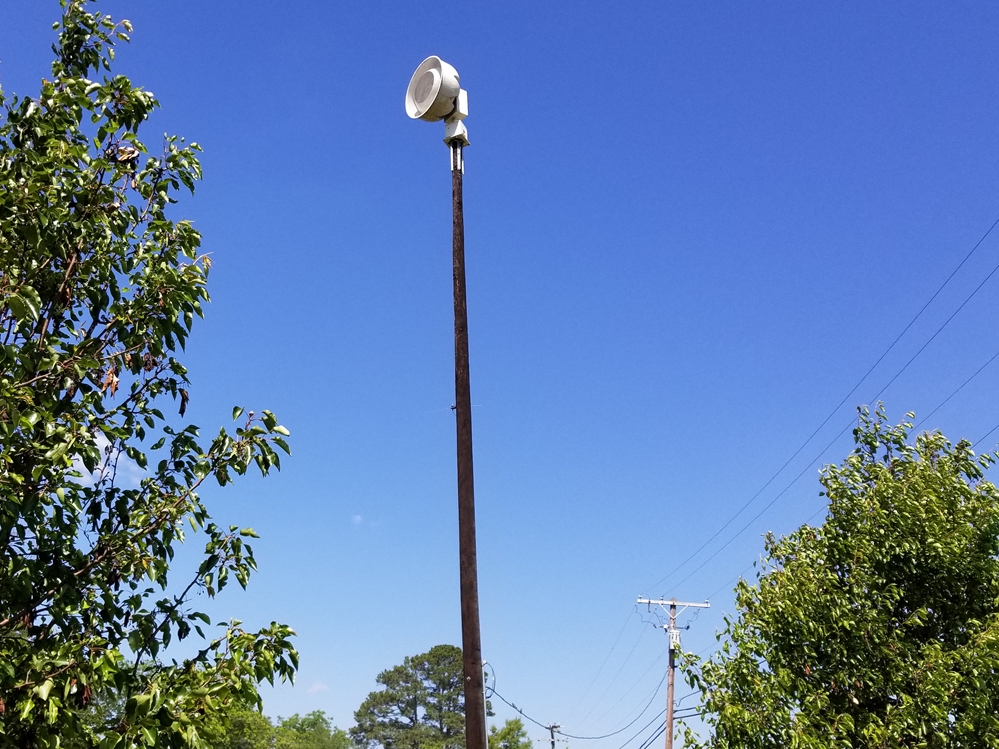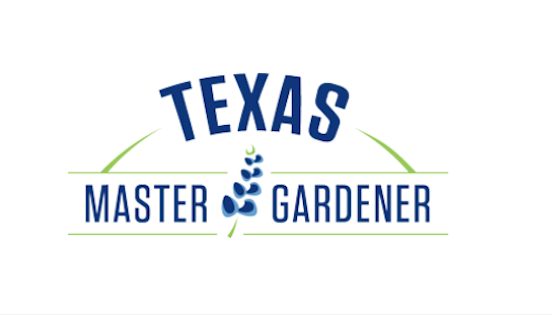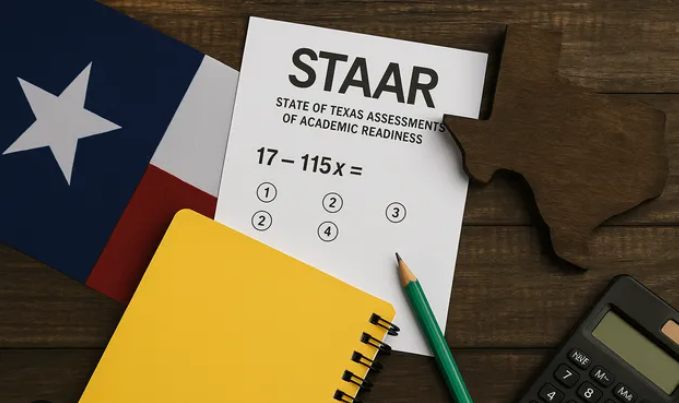Splooting Squirrels Are Nothing To Be Concerned About
May 15, 2025 – As temperatures rise across Texas and other parts of the country, many people have noticed squirrels lying flat on their bellies with their legs stretched out behind them—a behavior known as splooting. While it might look amusing or even alarming, experts say it’s a perfectly natural way for squirrels and other animals to cool off in extreme heat.
Many animals engage in this behavior. Dogs may adopt this position to relax, stretch and relieve pressure on the spine.
Splooting allows squirrels to press their bodies against cooler surfaces like sidewalks, tree branches, or shaded ground, helping them regulate their body temperature. By spreading out and maximizing contact with these cooler surfaces, squirrels can release heat more efficiently. This behavior is similar to what pet owners may notice in dogs or cats during hot weather.

Wildlife experts say splooting is not a sign of distress, but rather a heat management strategy. However, it also highlights how rising temperatures are affecting urban wildlife, pushing animals to adapt in visible ways.
With record-breaking heat waves becoming more common, Texans are encouraged to provide water sources for animals and avoid disturbing splooting squirrels—they’re just trying to stay cool. If you see one stretched out on the pavement or in your yard, it’s likely doing exactly what it needs to survive the sweltering weather.
State Fair of Texas Unveils 2025 Commemorative Theme Art, “Texas Shines Bright”
By VERONICA DELGADO | May 14, 2025 – There is so much to see and do at the State Fair of Texas, but for this year’s Commemorative Art, “Texas Shines Bright,” we decided to step back and focus our spotlight on our Texan ambassador. For more than 70 years, Big Tex has stood proud and tall in the heart of the Most Texan Place on Earth: The State Fair of Texas. From the heel of his boot to the tip of his hat, he stands at 55 feet tall, but in our minds, he looms larger than life. A giant cowboy with an even bigger heart, he embodies everything admirable about the Lone Star State and its residents. With a friendly smile, a genuine wave, and a hospitable catchphrase – “Howdy, folks!” – Big Tex is a beacon of goodwill and resilience. Big Tex is a gentle giant, one who inspires us all to be kind, have fun, and show the world what it means to truly be Texan.
Capturing the awe-inspiring experience of standing at the base of Big Tex Circle and marveling up at Big Tex himself was a challenge we were up for. This was also our opportunity to show Big Tex outside of the fairgrounds, but still showcase his friendly nature. We believe Big Tex belongs to all Texans, so what does it look like to have Big Tex walking through the state of Texas? Is he as tall as we imagine him to be? Yes!
One hand waves, and one outstretched hand ushers guests from far and wide to the fairgrounds. Big Tex is known for his recognizable stance, but what else could he do with his enormous hands? Could he give an armadillo a high-five? Could he pick a bushel of Texas wildflowers? Could he offer a helping hand? In this year’s commemorative art, we wanted to envision Big Tex being so tall that he could pluck a star from the sky. Or in other words, he could hold the “lone star” of the state in the palm of his hands, shining a light down on us all.
From the plateaus of West Texas to the Pineywoods of East Texas, this year’s commemorative art uses landscape and natural elements to represent the variety of our state, with a special nod to the Dallas-Fort Worth area, the Fair’s home. A closer look around Big Tex reveals fun nods to the Texan experience, both urban and rural. Towering above it all is our favorite cowboy, planting himself deep within the heart of Texas but forever reaching out for new friends and new possibilities.
If Big Tex represents the best of Texans, then his beaming smile and the brightness of his welcoming spirit embody the Fair itself. After all, the State Fair of Texas is the Most Texan Place on Earth, so that same good-natured light is alive across the fairgrounds each and every year here at Fair Park. And at the center of it all, standing tall and shining bright, is Big Tex, encouraging us all to reach for the stars.
“Each year, the State Fair of Texas tells a story of pride, tradition, and the unmistakable spirit of our great state. With this year’s commemorative art, “Texas Shines Bright,” we set out to celebrate the heart of that story on the fairgrounds, Big Tex. He’s more than a symbol. He’s a towering tribute to everything we love about Texas and unshakable hospitality. This artwork is a heartfelt tribute to the Lone Star State, its people, and our legendary cowboy, who reminds us all to dream big, stand tall, and shine bright,” said Mitchell Glieber, State Fair of Texas president.
We welcome you to join us here at the Most Texan Place on Earth to celebrate the 2025 theme “Texas Shines Bright,” starting September 26 and running through October 19 at historic Fair Park in Dallas. Merchandise is now available at BigTex.com/Store. More information on season passes and tickets for the 2025 Fair will be available next month; sign up to be a Big Tex Insider and be the first to know.

Can a Drug Sniffing Dog Violate Fourth Amendment Rights?
May 14, 2025 – The Texas Court of Criminal Appeals, the state’s highest criminal court, is weighing a case that could have significant implications for search-and-seizure protections under the Fourth Amendment. The issue centers around whether a police dog is allowed to insert its nose into an open car window during a traffic stop without a warrant or probable cause.
The case stems from the arrest of James-Varnell Organ in Waller County, where a narcotics detection dog named Jaks jumped up on Organ’s vehicle and pushed his nose through an open window during an exterior sniff. Upon alerting to the presence of drugs, officers searched the vehicle and discovered Etizolam, a Schedule I controlled substance. Organ was subsequently arrested for illegal possession.
Prosecutors argue that the dog’s behavior did not violate Organ’s constitutional rights, claiming that a sniff from a trained canine during a lawful traffic stop is not a “search” under the Fourth Amendment. They emphasize that the window was already open and that the dog acted instinctively during a lawful exterior sniff.
The defense, however, contends that the moment the dog’s nose entered the vehicle, it crossed a constitutional boundary. They argue that the intrusion amounted to an unlawful search without a warrant or probable cause, thus violating Organ’s Fourth Amendment rights.
Legal experts say the ruling could establish a precedent in Texas on the limits of canine searches and whether a distinction must be made between passive exterior sniffs and physical intrusion into a private vehicle. The outcome may also influence broader national conversations on the balance between law enforcement tools and personal privacy.
A decision from the court is expected later this year, and it could reshape how police K-9 units conduct vehicle searches in Texas and beyond.

Paris Junior College’s TRIO Upward Bound Student Ethan Dao Selected for Prestigious Gates Scholarship
May 13, 2025 – Paris, Texas – Paris Junior College’s TRIO Upward Bound program is celebrating a tremendous milestone: student Ethan Dao has been selected as a recipient of the prestigious Gates Scholarship. This elite, full-ride scholarship is awarded to just 300 exceptional high school seniors nationwide each year, out of thousands of applicants.
Dao’s selection is a testament not only to his academic excellence, drive, and resilience, but also to the critical role of the Upward Bound program at PJC, which has supported him throughout high school.
“Ethan has been a part of PJC Upward Bound since his freshman year of high school,” said Christi Barham, Director of Upward Bound at Paris Junior College. “I highly encouraged him to apply for the Gates Scholarship last summer during our summer program, based on his academic achievements. We walked with him through every step of the multi-phase application process—from the initial application to the final interview.
Funded by the Bill & Melinda Gates Foundation, the Gates Scholarship (originally the Gates Millennium Scholars Program) was rebranded in 2017 and continues to provide a full scholarship covering tuition, fees, room and board, books, and additional expenses—eliminating financial barriers to higher education for high-achieving, low-income, minority students.
“Gates is one of the most competitive scholarships in the country,” said Barham. “It begins the summer before senior year, with multiple application phases and a final interview round. Ethan’s success in this rigorous process is extraordinary.”
Dao credits Upward Bound with preparing and supporting him throughout the journey.
In addition to the Gates Scholarship application, Barham and the Upward Bound team helped Dao complete the FAFSA, College Board CSS Profile, and college applications in early fall. The team continues to support him through his housing application, orientation registration, and every step toward a successful college transition.
Dao will attend the University of Texas at Austin this fall and plans to pursue medical school afterward, with the goal of becoming a cardiothoracic surgeon.
“Ethan and I really bonded over that goal since I’ve had personal experience with it from a parent perspective involving open heart surgery,” said Barham. “We are so proud of all his accomplishments and cannot wait to see what the future holds for him.”
Ethan is the fourth Gates Scholar to come from the PJC Upward Bound program during Barham’s time at the college.
PJC’s Upward Bound program, a federally funded TRIO initiative, provides academic support, mentorship, and college readiness for first-generation and low-income students. Dao’s achievement is a shining example of how the program transforms lives and empowers students to reach their dreams.
For more information about Paris Junior College’s Upward Bound program, visit www.parisjc.edu/main/upward-bound-at-pjc/ or contact [email protected].
###

Paris Junior College — located in Paris, Texas, about 100 miles northeast of Dallas — has been a part of the Lamar County community since 1924.
Paris Junior College offers Associate in Arts, Associate in Science and Associate in Applied Science degrees, as well as Certificates of Proficiency in technical/workforce fields. The college has expanded its academic curriculum through the years to encourage associate degree and university transfer candidates. Since establishing its first vocational program — jewelry and watchmaking in 1942 — the college has been aggressive in adding technical/workforce programs that will benefit students entering the workforce.
The campus of 54 tree-shaded acres includes 20 major buildings and residence halls and provides students a unique and pleasant environment for learning.
Paris Junior College also operates centers in Sulphur Springs, Texas, and in Greenville, Texas.
Vision
To be the educational provider of choice for the region.
Mission
Paris Junior College is a comprehensive community college serving the region’s educational and training needs while strengthening the economic, social and cultural life of our diverse community.
Sulphur Springs Emergency Sirens Will Be Tested May 13
May 13, 2025 – Emergency sirens will be tested in Sulphur Springs at noon today by the Sulphur Springs Emergency Management Office.
The test is to gauge the reliability of the emergency warning system and is conducted to find any potential flaws in the system so they can be corrected prior to a real emergency situation. The sirens could be sounded not only for weather warnings such as tornadoes, which are the most common in the area, but also in case of any emergency that could affect the safety and lives of citizens in Sulphur Springs.
Recent tests have shown the emergency sirens to be a ready source of warning in case of emergencies such as tornados or other threats to safety.
This will only be a test.

Boil Water Notice for Shirley Water Supply
May 13, 2025 – As a safety precaution since the water system lost pressure, We are issuing a BOIL WATER NOTICE, until our pressure is restored and water samples are taken.
You will need to boil your water prior to consumption (washing hands/face, brushing teeth, drinking etc.) Children, seniors, and persons with weakend immune systems are particularly vulnerable to harmful bacteria, and all customers should follow these directions.
To ensure destruction of all harmful bacteria and other microbes, water for drinking, cooking, and ice making should be boiled and cooled prior to use for drinking water or human consumption purposes. The water should be brought to a vigorous rolling boil and then boiled for 2 minutes. In leiu of boiling water, individuals may purchase bottled water or obtain water from another suitable source for drinking water or human consumption purposes.
When it is no longer necessary to boil the water, the water system will issue a notice to that rescind the boil water notice. We are issuing this notice as a precautionary measure. If you have questions you may call the office at 903-485-5811.

Texas Education Agency Says Less Than Half of New Texas Teachers are Certified
May 13, 2025 – The Texas Education Agency (TEA) has raised concerns over a troubling trend: a significant decline in the number of certified teachers in Texas classrooms. For the 2024–2025 school year, Texas schools hired approximately 43,800 new teachers, but only 45% of them were fully certified. This marks a sharp drop in the proportion of credentialed educators entering the profession, a development that officials say could impact classroom quality and student outcomes.
The remaining 55% of newly hired teachers are working under alternative certifications, emergency permits, or are uncertified entirely. Education experts point to a variety of contributing factors, including high turnover rates, low pay, and increasingly difficult working conditions. Many school districts, particularly in rural or under-resourced areas, are struggling to attract and retain experienced, certified educators.
TEA officials stress that while alternative pathways to teaching help fill urgent staffing gaps, certified teachers have undergone rigorous training that prepares them for the classroom in ways others may not. The trend raises long-term questions about teacher preparation, support, and retention.
State lawmakers are being urged to address the shortage by investing in teacher training programs, raising salaries, and reducing barriers to certification in order to ensure every Texas student has access to a qualified educator.

Master Gardener Ronnie Wilson Chats About an Event May 15th on This Second Cup Of Coffee
On this episode of KSST’s A Second Cup Of Coffee With John Mark Dempsey, John Mark sat down with Texas A&M AgriLife Extension Office Hopkins County Master Gardener Ronnie Wilson. John Mark and Ronnie chat about what wildflowers are in bloom during this time of year, what mulch you should use, a program on lawns Ronnie Wilson will present at the Extension Office on May 15th, 2025, and so much more. Be sure to check out this interesting segment of A Second Cup Of Coffee With John Mark Dempsey and learn more about gardening and more.

STAAR Test On The Chopping Block
May 12, 2025 – House Bill 4, passed by the Texas House of Representatives on May 12, 2025, represents a sweeping reform of the state’s public school accountability system. Aimed at addressing long-standing concerns about overreliance on standardized testing, the bill significantly overhauls the current assessment framework, particularly the STAAR test (State of Texas Assessments of Academic Readiness), and introduces broader performance indicators to better reflect student learning and school effectiveness.
A major feature of HB 4 is the reduction of standardized testing. The bill proposes replacing the STAAR exam with shorter, instructionally supportive assessments administered throughout the academic year. These new tests are intended to align more closely with classroom instruction and provide faster feedback, allowing educators to respond to student needs in real time.
The bill also restricts the authority of the Texas Education Agency (TEA) by requiring legislative approval for any significant changes to the A-F school rating system. This measure is designed to ensure greater transparency and oversight in how schools are evaluated.
In addition, HB 4 introduces new metrics into the accountability framework. Schools will now be assessed on factors such as the quality of teacher training in math and literacy and student participation in workforce training programs. These indicators are intended to better reflect both academic preparedness and career readiness.
Another innovative component is the creation of a grant program to support districts in developing their own local accountability plans, tailored to the specific needs and goals of their communities.
If approved by the Texas Senate, House Bill 4 could mark a major shift in how Texas measures educational success—emphasizing instructionally meaningful assessments and broadening the definition of school performance beyond standardized test scores.

Opinion: No Hospital, No Hope: The Fight for Rural Health Care in Texas.
An Editorial by Texas Agriculture Commissioner Sid Miller
May 12, 2025 -As we recognize National Hospital Week, it’s important to honor the men and women who dedicate their lives to keeping our communities healthy. From the nurses who provide compassionate care to the doctors who offer life-saving expertise, our rural hospitals are staffed by incredibly committed individuals who often perform multiple roles to keep everything running smoothly, and it’s important we also recognize the challenges Texas’s rural hospitals face. Rural Texas is worth fighting for, and the healthcare providers who keep them healthy are worth celebrating.
In rural Texas, a hospital isn’t merely a place to seek care; it is the heart of a community. Whether it’s a farmer who has had an accident in the field, a rancher battling heart disease, or a child with a high fever in the middle of the night, rural hospitals are always there, ready to serve.
From hardworking ranchers in the Hill Country to cotton farmers in West Texas, one thing remains constant: Texans take pride in their small towns, the unique culture they represent, and the rural hospitals that serve them. Dozens of hospitals serve primarily rural areas across the vast expanse of Texas. These hospitals are more than just a place for medical treatment; they are a pillar of strength, offering healthcare and contributing to rural life with jobs, support, and stability.
But while rural hospitals are a source of pride, many are facing serious challenges that threaten their ability to continue providing care. Over the last decade, many rural hospitals in Texas have closed their doors, and more struggle to stay afloat. The reasons are clear: rising costs, a shortage of healthcare workers, and cumbersome federal regulations that consume precious time and talent that could be devoted to patient care.
Unlike their urban counterparts, rural hospitals operate in a much more challenging environment. They treat fewer patients but serve a significantly larger geographic area, sometimes covering hundreds of square miles, and are expected to provide everything from emergency care to routine check-ups with limited resources and staff.
It’s critical to recognize that rural hospitals are not just medical institutions—they’re economic engines for small towns across Texas. These hospitals are significant employers in rural counties, providing good-paying jobs that support families and drive the local economy.
That’s why we can’t afford to let rural hospitals fail. For rural Texas to remain strong, we must ensure rural hospitals have the resources necessary to continue serving and thriving. This means supporting rural health infrastructure, expanding access to telemedicine, and making sure bureaucratic red tape doesn’t hinder access to the care rural Texans need and deserve.
Texas must invest in our rural healthcare system and ensure these hospitals are equipped to continue serving the people who depend on them every day. When a rural hospital closes, it’s not just a loss for healthcare; it is a loss for the entire community. Local businesses suffer, families and seniors may be forced to travel long distances for care, and the community loses a vital piece of its identity.
During National Hospital Week, the Texas Department of Agriculture is proud to stand behind our rural hospitals. Through our State Office of Rural Health and other programs, we’re working hard to keep the doors open, the lights on, and the doctors, nurses, and other medical professionals in place.
Our small towns are a tremendously important part of what makes Texas the best state in the nation. Texans know we are only as strong as the communities we build, and rural hospitals play a key role in developing those communities. This National Hospital Week, let’s come together to celebrate their contributions and reaffirm our commitment to keeping them strong.
These hospitals are lifelines for rural Texans, and as your Agriculture Commissioner, I’ll keep fighting to make sure folks in small towns get the care they need without having to drive hours to find it. Let’s work together to ensure the rural hospitals of Texas remain a vital part of our future, for our families and our Texas way of life.
















